商务英语综合教程unit1 PPT
- 格式:ppt
- 大小:2.04 MB
- 文档页数:66

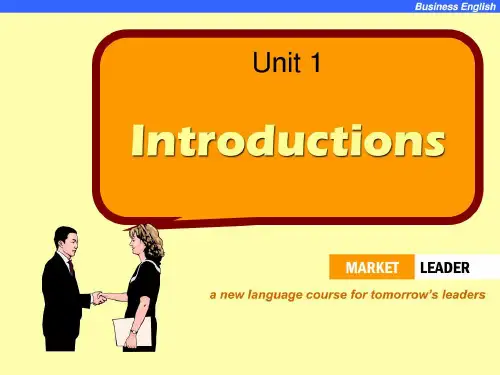
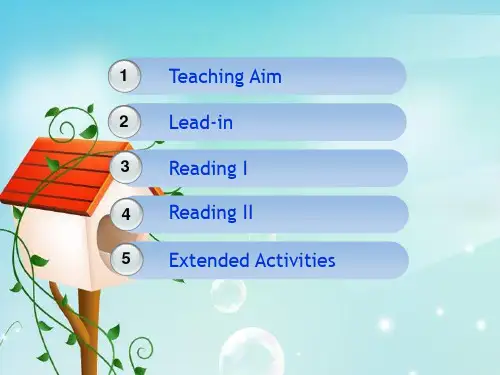
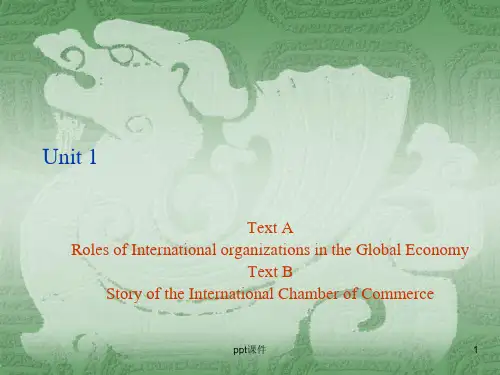
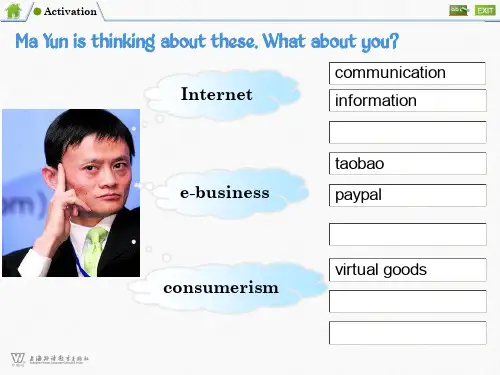
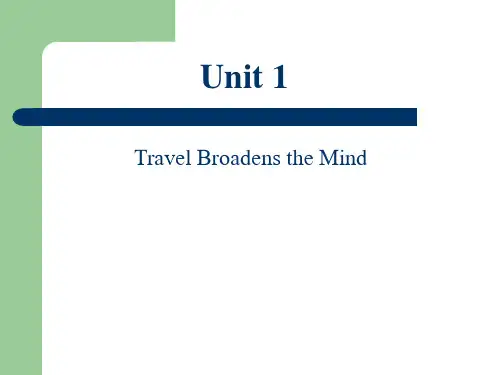

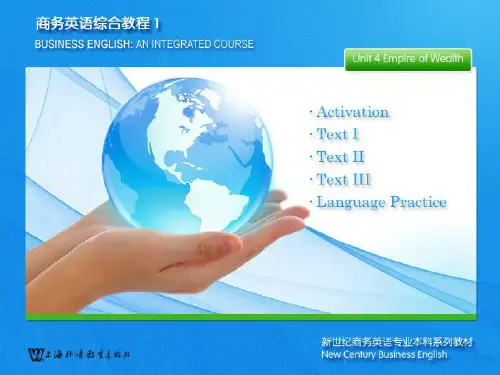
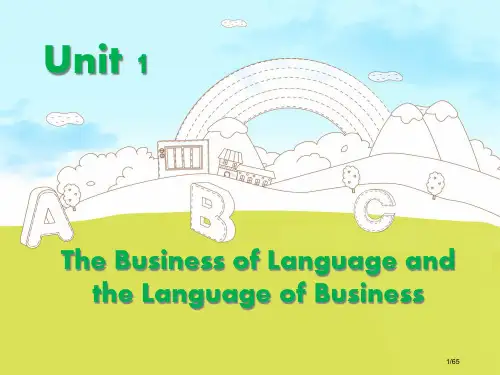
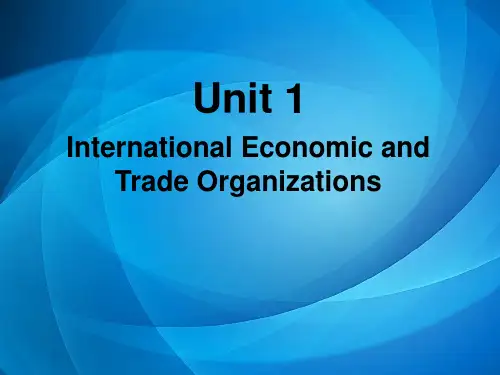
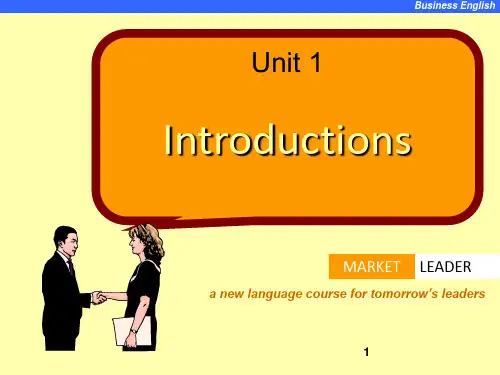
外研社新标准商务英语综合教程1New Standard Business English CourseUnit One: Introduction to Business CommunicationIn this unit, you will learn about the basics of business communication. You will learn about different types of communication tools, the purpose of communication and how to choose the right communication method and message.Communication ToolsBusiness communication can be done in many ways, including verbal and written communication. Verbal communication can happen in person or over the phone, while written communication can be in the form of emails, letters, or memos.Purpose of CommunicationThe purpose of communication is to convey information from one person or group to another. In business, the purpose of communication can be to convey information about a particular product or service, to invite someone to an event or to simply keep people informed about changes in the company.Choosing the Right Method and MessageEffective communication depends on choosing the right method and message for your intended audience. Consider your audience before choosing the method of communication and tailor yourmessage to fit their needs.Unit Two: Business WritingThis unit will focus on writing skills for business. You will learn about formal and informal writing, how to write emails, letters and memos, and how to write an effective business report.Formal and Informal WritingFormal writing is used in professional communication and requires a specific style and tone. Informal writing is used in everyday communication and tends to be less structured and more conversational.Writing Emails, Letters and MemosEmails, letters and memos are all important forms of business communication. In this unit, you will learn the key elements of each type of writing and how to write clear and effective messages.Writing a Business ReportA business report is a formal document that provides information on a particular topic. In this unit, you will learn how to structure a business report, how to collect and analyze data, and how to present your findings effectively.Unit Three: Presentations and Public SpeakingThis unit will teach you how to give effective presentations and become a confident public speaker. You will learn how to structure a presentation, create effective visuals and use body language to convey your message.Structuring a PresentationEffective presentations require careful planning and organization. In this unit, you will learn how to structure a presentation that captures your audience's attention and conveys your message effectively.Creating Effective VisualsVisual aids can enhance the impact of a presentation. In this unit, you will learn how to create effective visual aids that support your message and engage your audience.Using Body LanguageBody language is an important part of communication, especially in public speaking. In this unit, you will learn how to use body language effectively to convey confidence and professionalism.Unit Four: Negotiation SkillsThis unit will teach you the skills needed for successful negotiation in business. You will learn about negotiation styles, techniques and strategies, and how to negotiate effectively with different personalities.Negotiation Styles, Techniques and StrategiesNegotiation requires careful planning and preparation. In this unit, you will learn about different negotiation styles, techniques and strategies that can be used to achieve a successful outcome.Negotiating with Different PersonalitiesEffective negotiation requires an understanding of different personality types. In this unit, you will learn how to identify different personality types and how to adapt your negotiation style to work effectively with each personality type.Unit Five: Cross-Cultural CommunicationIn a global business environment, cross-cultural communication is essential. This unit will teach you how to communicate effectively with people from different cultures and how to avoid common cultural mistakes.Communication Across CulturesDifferent cultures have different communication styles and norms. In this unit, you will learn about different communication styles and how to adapt your own communication style to work effectively with people from different cultures.Avoiding Cultural MistakesCultural differences can lead to misunderstandings and mistakes. In this unit, you will learn how to avoid common cultural mistakes and how to communicate effectively across cultural divides.ConclusionThe New Standard Business English Course is designed to provide you with the skills and knowledge needed to communicate effectively in a business environment. The course covers a range of topics, from business writing and negotiation skills to presentations and cross-cultural communication. By completing this course, you will be well-prepared to communicate confidently and professionally in any business situation.Unit One: Introduction to Business CommunicationCommunication is essential in business, and the ability to communicate effectively can make a significant difference in the success of any endeavor. In Unit One, you will learn about the basics of business communication.The purpose of communication is to convey information from one person or group to another. In business, the purpose of communication can be to convey information about a particular product or service, to invite someone to an event, or to simply keep people informed about changes in the company. Communication can take place verbally or in written form. Verbal communication can happen in person or over the phone, while written communication can be in the form of emails, letters, or memos. Choosing the right method and message for your intendedaudience is essential for effective communication. Consider your audience before choosing the method of communication and tailor your message to fit their needs. For instance, if you are communicating with clients or customers, you may want to use more formal language. In contrast, if you are communicating with colleagues, informal language might be more appropriate.Unit Two: Business WritingEffective writing skills are essential in business. In this unit, you will learn about formal and informal writing, how to write emails, letters, and memos, and how to write an effective business report.Formal writing is used in professional communication and requires a specific style and tone. It is usually used for more official purposes and has a more structured format than informal writing. Informal writing is used in everyday communication and tends to be less structured and more conversational.Emails, letters, and memos are all important forms of business communication. In this unit, you will learn the key elements of each type of writing and how to write clear and effective messages. Writing clear emails is an essential part of business communication, as it is a quick and convenient method of communication. A well-written email can convey your message effectively and make a positive impression on the recipient.A business report is a formal document that provides information on a particular topic. In this unit, you will learn how to structure a business report, how to collect and analyze data, and how topresent your findings effectively.Unit Three: Presentations and Public SpeakingPublic speaking is a crucial skill for business professionals, and the ability to give effective presentations can be a valuable asset. In this unit, you will learn how to structure a presentation, create effective visuals, and use body language to convey your message.Effective presentations require careful planning and organization. In this unit, you will learn how to structure a presentation that captures your audience's attention and conveys your message effectively. The key elements of an effective presentation include an engaging opening, clear objectives, a compelling argument, supportive evidence, and a memorable conclusion.Visual aids can enhance the impact of a presentation. In this unit, you will learn how to create effective visual aids that support your message and engage your audience. The key to creating effective visuals is to keep them simple, relevant, and visually appealing. Body language is an important part of communication, especially in public speaking. In this unit, you will learn how to use body language effectively to convey confidence and professionalism. Effective use of body language can help you connect with your audience and build rapport, making your presentation more effective.Unit Four: Negotiation SkillsNegotiation is an essential part of business, and the ability to negotiate effectively can make a significant difference in the success of any endeavor. In this unit, you will learn about negotiation styles, techniques, and strategies, and how to negotiate effectively with different personalities.Negotiation requires careful planning and preparation. In this unit, you will learn about different negotiation styles, techniques, and strategies that can be used to achieve a successful outcome. By learning how to effectively negotiate, you can better manage conflict, build stronger relationships, and achieve mutually beneficial outcomes.Effective negotiation requires an understanding of different personality types. In this unit, you will learn how to identify different personality types and how to adapt your negotiation style to work effectively with each personality type. By understanding the different communication styles and behavior patterns, you can better navigate the negotiation process and improve your chances of success.Unit Five: Cross-Cultural CommunicationIn today's global business environment, cross-cultural communication is essential. In this unit, you will learn how to communicate effectively with people from different cultures and how to avoid common cultural mistakes.Different cultures have different communication styles and norms. In this unit, you will learn about different communication stylesand how to adapt your own communication style to work effectively with people from different cultures. By understanding cultural differences and adapting your style accordingly, you can better communicate with people from different backgrounds and build stronger relationships.Cultural differences can lead to misunderstandings and mistakes. In this unit, you will learn how to avoid common cultural mistakes and how to communicate effectively across cultural divides. By learning how to navigate cultural differences, you can better understand and engage with people from different cultures, improving your chances of success.ConclusionThe New Standard Business English Course is designed to provide you with the skills and knowledge needed to communicate effectively in a business environment. By completing this course, you will be well-prepared to communicate confidently and professionally in any business situation. With a focus on business writing, presentations and public speaking, negotiation, and cross-cultural communication, this course provides a comprehensive overview of essential skills for success in the workplace.。